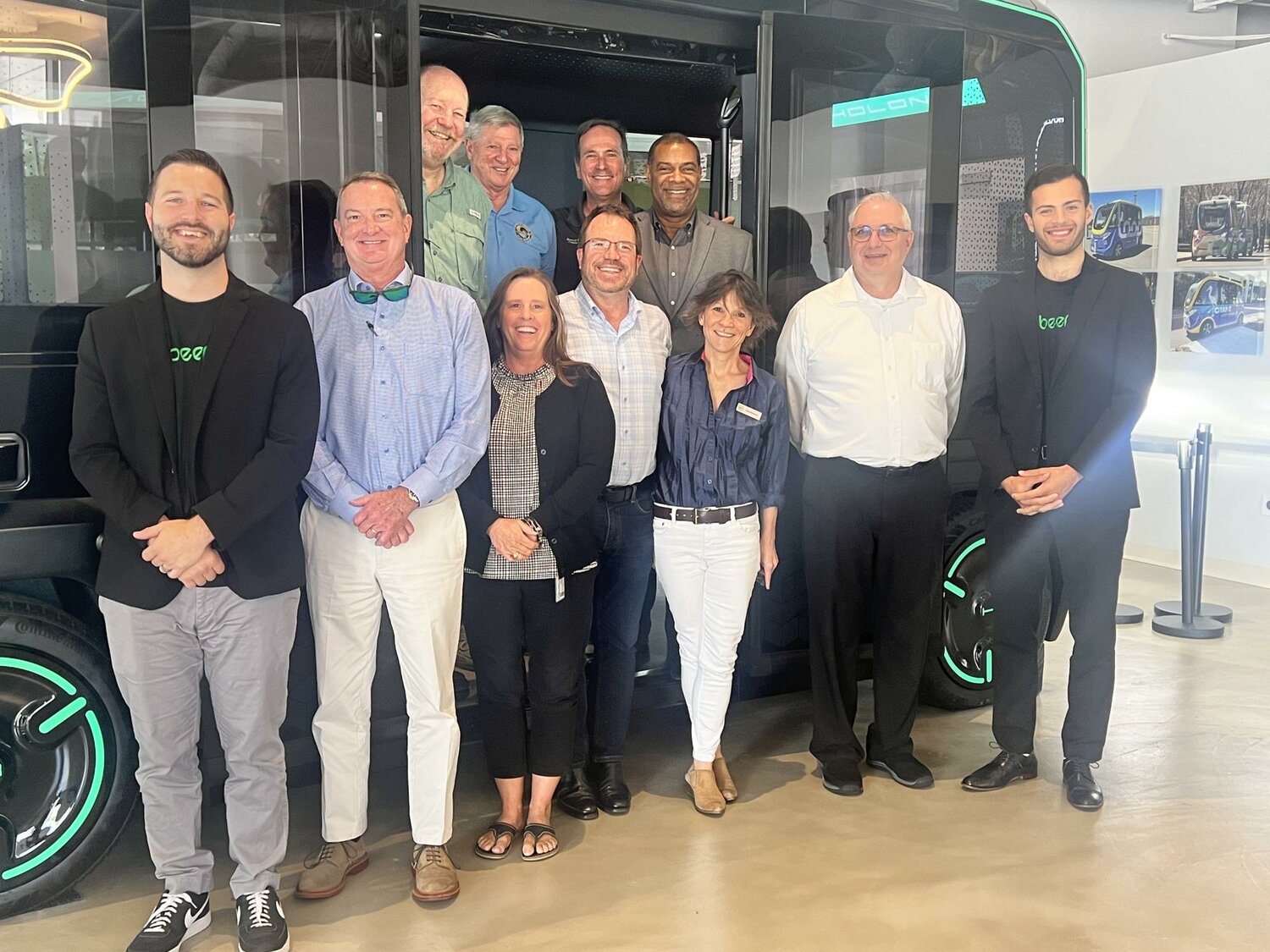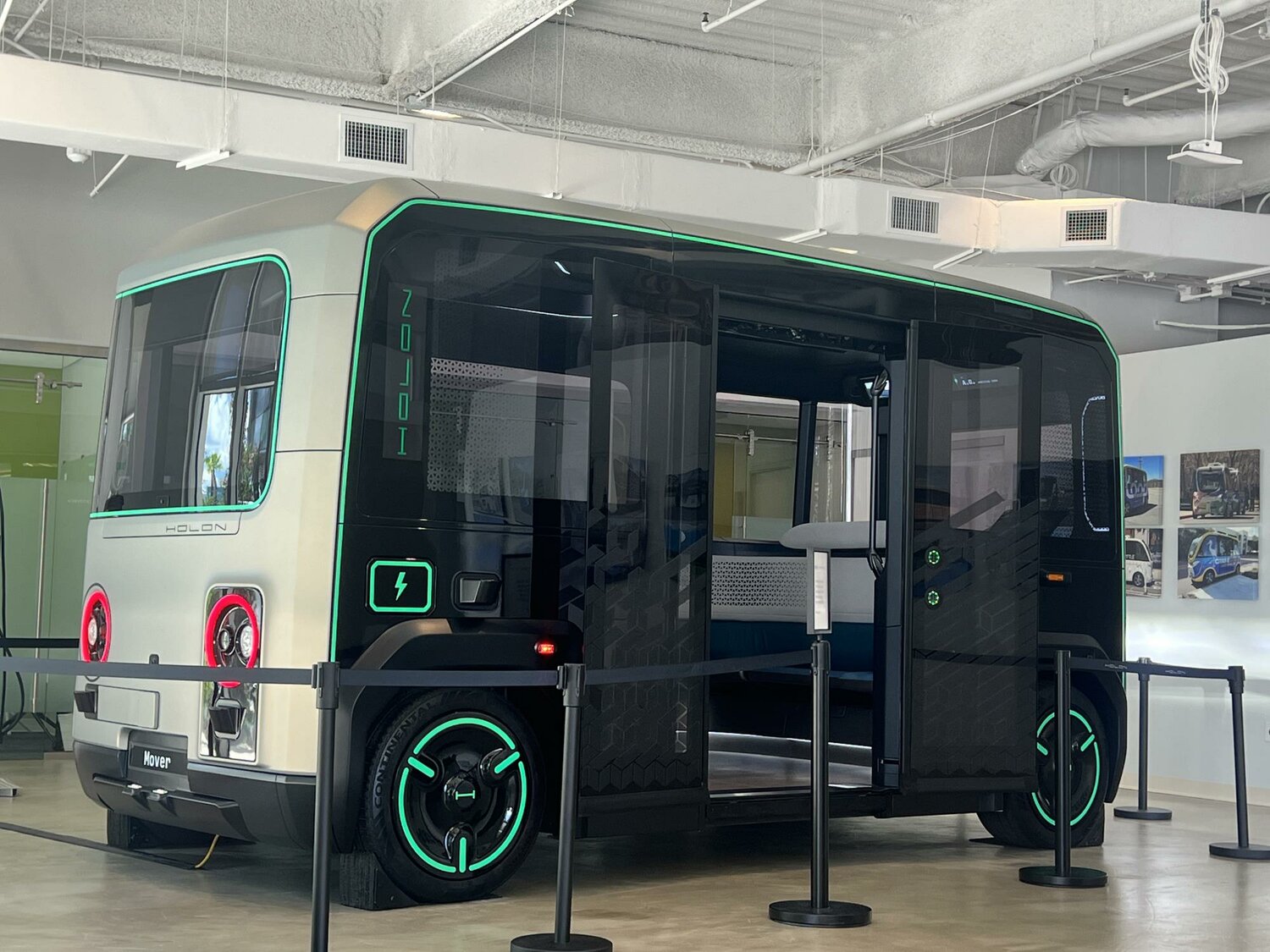County exploring the possibility of driverless vehicles
Proposed autonomous bus routes on College, Wells, High Ridge
kyla@claytodayonline.com
CLAY COUNTY — A group of county leaders is considering the feasibility of putting a computer behind the wheel for several proposed autonomous bus routes. Led by Chairman of the Board of …
This item is available in full to subscribers.
Attention subscribers
To continue reading, you will need to either log in to your subscriber account, below, or purchase a new subscription.
Please log in to continueDon't have an ID?Print subscribersIf you're a print subscriber, but do not yet have an online account, click here to create one. Non-subscribersClick here to see your options for subscribing. Single day passYou also have the option of purchasing 24 hours of access, for $1.00. Click here to purchase a single day pass. |
County exploring the possibility of driverless vehicles
Proposed autonomous bus routes on College, Wells, High Ridge
CLAY COUNTY — A group of county leaders is considering the feasibility of putting a computer behind the wheel for several proposed autonomous bus routes.
Led by Chairman of the Board of County Commissioners Jim Renninger, the group recently returned from a trip to Lake Nona in Orlando to see a sample shuttle by Beep, a leading provider of autonomous mobility networks.
The sample shuttles they viewed operate daily on fixed routes, hold up to 11 passengers and move at a maximum speed of 15 miles per hour.
Renninger, who represents District 3, said the county’s interest in the new wave of transportation could rectify an intense lack of accessible transportation in some areas.
“To provide access to the services in Clay County, this would be a solution if we could implement it effectively and efficiently,” Renninger said.
The county identified three areas where the vehicles could possibly be placed: College Drive, Wells Road and High Ridge Estates in Keystone Heights.
Renninger said autonomous vehicles could improve the developing Wells Road corridor, which is surrounded by schools, apartments, hospitals and supermarkets. The vehicles could assist in the county's goal in making Wells Road a livable and workable area.
High Ridge Estates currently suffers from a lack of infrastructure, paved roads and sewer lines. Renninger described the community as a "blighted area" and hopes an autonomous bus line could solve the area's transportation difficulties.
Another possible region, the Gateway to Clay area, was first developed in the 1970s. For this reason, Renninger said the area needs to be reassessed to determine how the newest technology can better serve that growing community.
According to Renninger, these vehicles may be a key resource for helping residents be more interconnected in their communities.
“It provides access for those who don’t have vehicles, those who are incapable of driving vehicles, those who may need help and can’t get it from neighbors or family members,” Renninger said.
Although the idea is new to Clay County, the model has already begun implementation in the greater Jacksonville area.
The Jacksonville Transportation Authority plans to begin running its autonomous vehicles in 2025. Last fall, JTA started testing the vehicles at Florida State College at Jacksonville’s downtown campus.
After paying attention to other models and conducting extensive research, Renninger said the county has found the cars to be secure and innovative — and possibly less accident-prone than cars operated by humans.
“You have two eyes, but I can put 10 cameras on a car,” Renninger said.
Renninger said that most autonomous vehicles have radar, lidar and high-definition cameras, which allow for quicker processing. The vehicle can merge all three of these functions into one decision-making matrix, allowing the car to brake or steer away amid danger.
“You can think quickly. But computers are faster,” Renninger said. “They can churn out data, they can analyze data a lot quicker.”
Impact Clay, a local nonprofit organization, is located on College Drive. CEO and President Connie Thomas said she previously talked with Commissioner Mike Cella, who represents District 1, about the implementation of driverless transportation in that area.
Thomas said she thinks the idea would be great for College Drive as a whole but not so much for the needs of the growing Impact Clay Train.
The mobile crew makes it their mission to travel to pockets in the county that need social services; however, Thomas said some people aren't able to travel to some of their stops and get the help they need.
She supports the county's plan to explore more transportation methods but is unsure if autonomous vehicles will suit that purpose.
"The families that we need to help get to the train often live on dirt roads," Thomas said. "So, I don't know if that kind of vehicle would be able to do that."
Although Renninger said he is aware of the concerns and opinions following the county's announcement of the potential project, he clarified that nothing is set in stone. He said more research is still needed on how exactly autonomous lines can be implemented and funded.
But, with or without the autonomous vehicles, Renninger said residents can expect Clay County to keep moving forward into the future.
“We can’t put our head in the sand,” Renninger said. “If you’re not innovative, you're dying. Your community's going to die.”










